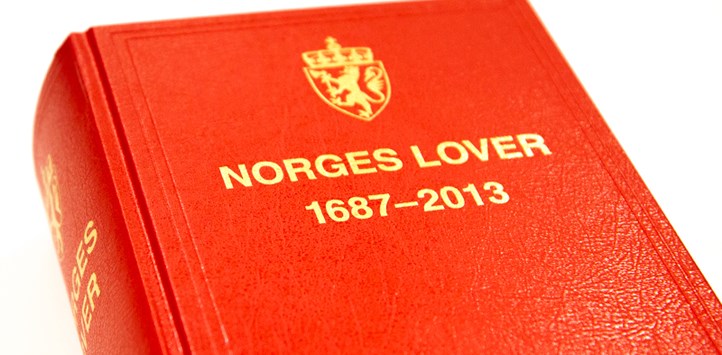 Up until 1972, sex between men was punishable by the current Penal Code of 1902 § 213. The struggle to get rid of this penalty was an important victory for the gay movement. And after this milestone was reached, Det Norske Forbund av 1948 [The Norwegian Confederation of 1948] continued their work to obtain a provision in the Criminal Code giving lesbians and gays a particular legal protection.
Up until 1972, sex between men was punishable by the current Penal Code of 1902 § 213. The struggle to get rid of this penalty was an important victory for the gay movement. And after this milestone was reached, Det Norske Forbund av 1948 [The Norwegian Confederation of 1948] continued their work to obtain a provision in the Criminal Code giving lesbians and gays a particular legal protection.
In 1981, just nine years after the provision that penalized sex between men was abolished, lesbians and gays were given such protection against discrimination. From then on, the Penal Code of 1902 section 135a and 349a protected against discrimination on grounds of people's sexual orientation and way of life. The provision of § 135 is the precursor to the current provision of hate crime.
See Tidslinje for utviklingen av juridiske rettigheter. Read also St.meld. nr. 25 (2000-2001) Levekår og livskvalitet for lesbiske og homofile i Noreg.
Regulation of lesbian and gay cohabitation
Another big issue for the gay movement was the question of regulating lesbian and gay cohabitation. In 1991, a law was passed on shared households which gave some limited rights to same-sex cohabitants, but this law did not regulate gay and lesbian cohabitation specifically. Proper regulation was not obtained until the Registered Partnership Act was sanctioned on April 30, 1993. According to section 1 of the Act, same-sex couples could register their partnership. In 1997, a new section 55A of the Working Environment Act was passed, which prohibited against discrimination based on sexual orientation during employment.
Efforts to regulate gay and lesbian cohabitation continued after the Partnership Act, and in 2008, as a result of this work, a common marriage law was passed in which all married couples (including same-sex couples) were guaranteed equal rights. But it was not possible for same-sex couples to get married in a church until 2016, when the church meeting finally decided for it. In 2017, a joint liturgy was adopted, and on February 1, 2017, the first same-sex couple were consecrated in The Norwegian Church.
Status today and moving forward
Here I have mentioned but a few of the struggles that have been fought for gays and lesbians. I could have mentioned that homosexuality from 1977 was no longer a psychiatric diagnosis, the possibility of stepchild adoption, the question of artificial insemination and many other issues.
Read more about Lesbiskes og homofiles rettsstilling. Read the report Trygghet og mangfold. En skeiv erfaringskonferanse. Read also Trygghet, mangfold og åpenhet. Regjeringens handlingsplan mot diskriminering på grunn av seksuell orientering, kjønnsidentitet, kjønnsuttrykk 2017–2020.
As a result of an almost 70-year struggle, lesbians, gays and bisexuals today have good protection and equal rights. One might wonder what happens then, is the "fight" finally won? Some might say yes, and that it is time to shut down the gay movement. But equal rights for gays and lesbians does not mean that other groups such as transgender people have equal rights, where in fact much work remains to be done.
Read more about Transkjønnedes rettigheter - er kampen vunnet?
In addition, the gay movement also has an international responsibility, to continue fighting in solidarity with gays and lesbians in other countries, who continue to face discrimination and persecution. It is also important that it is not just about being right, but also getting right. By this I mean that formally equal rights is no guarantee against discrimination and oppression. These rights must also be enforced and complied with. Equal rights alone is no guarantee that lesbians and gays, and their way of life and ways of living are recognized and respected.